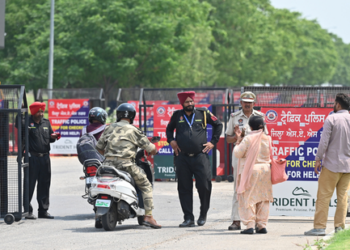Amid escalating tensions between India and Pakistan, a Pakistani delegation in the United States has emphasized the urgent need for dialogue following India’s suspension of the Indus Waters Treaty (IWT). The treaty, established in 1960 under World Bank mediation, governs the distribution of waters from the Indus River and its tributaries between the two nations.
The suspension, announced by India on April 23, 2025, followed a terrorist attack in Pahalgam, Kashmir, which resulted in 26 fatalities. India attributed the attack to Pakistan-based militants, a claim Pakistan denies. In response, India suspended the IWT, citing national security concerns and demanding that Pakistan cease support for cross-border terrorism. This move has significantly strained bilateral relations and raised concerns over regional stability.
Pakistan’s delegation in Washington has highlighted the severe implications of the treaty’s suspension on the nation’s agriculture-dependent economy. The Indus River system is crucial for Pakistan’s irrigation, providing water for approximately 80% of its irrigated agriculture. Disruptions in water flow could lead to crop failures, food shortages, and economic instability, particularly in provinces like Punjab and Sindh.
thedailyguardian.com
Prime Minister Shehbaz Sharif has expressed Pakistan’s openness to dialogue, emphasizing the importance of cooperation over confrontation. However, India has conditioned the resumption of talks on Pakistan taking definitive actions against terrorism. The deadlock continues to pose significant challenges to both nations’ diplomatic efforts.
The United States has played a pivotal role in mediating between India and Pakistan, facilitating a ceasefire agreement after a week of intense military clashes in May 2025. Despite this, the suspension of the IWT remains unresolved. The U.S. has urged both countries to engage in constructive dialogue to address the underlying issues and prevent further escalation.
The suspension of the Indus Waters Treaty has exacerbated tensions between India and Pakistan, threatening regional peace and the livelihoods of millions. Pakistan’s delegation in the U.S. continues to advocate for dialogue and peaceful resolution, underscoring the critical need for cooperation in managing shared water resources. The international community’s support for mediation and conflict resolution remains essential in navigating this complex dispute.








 India
India












